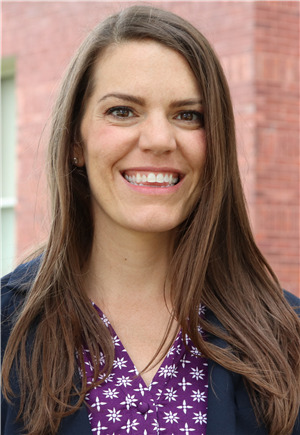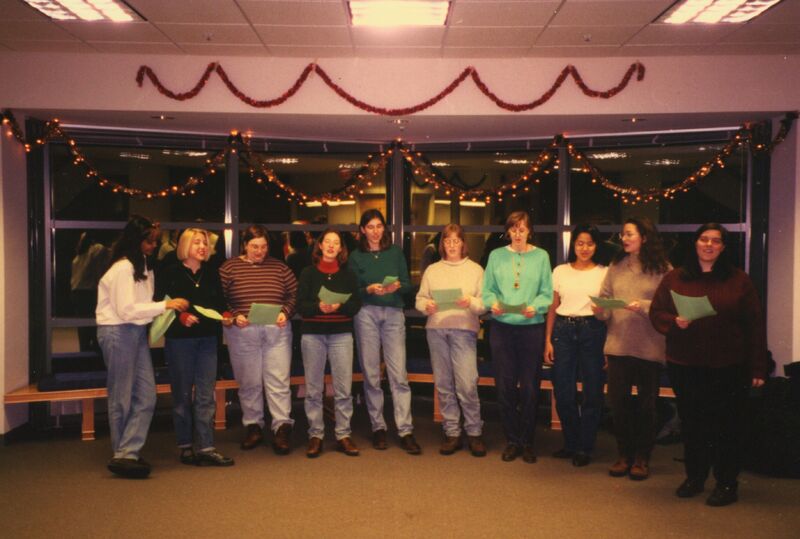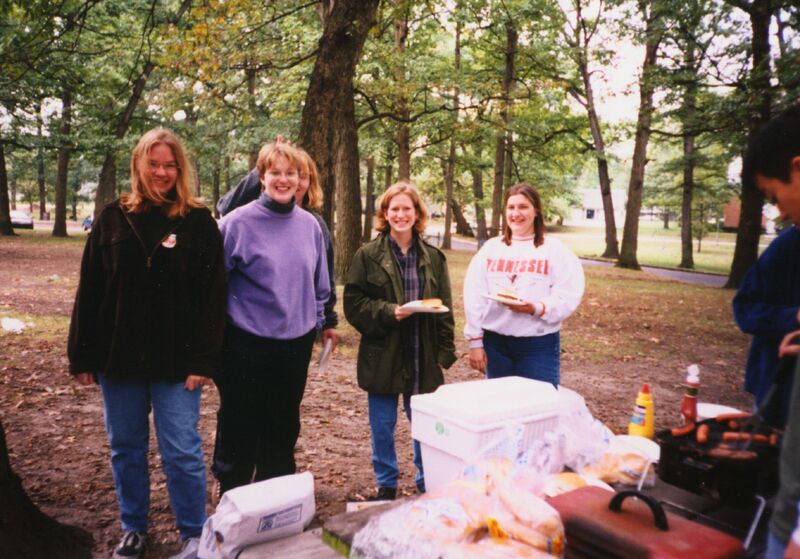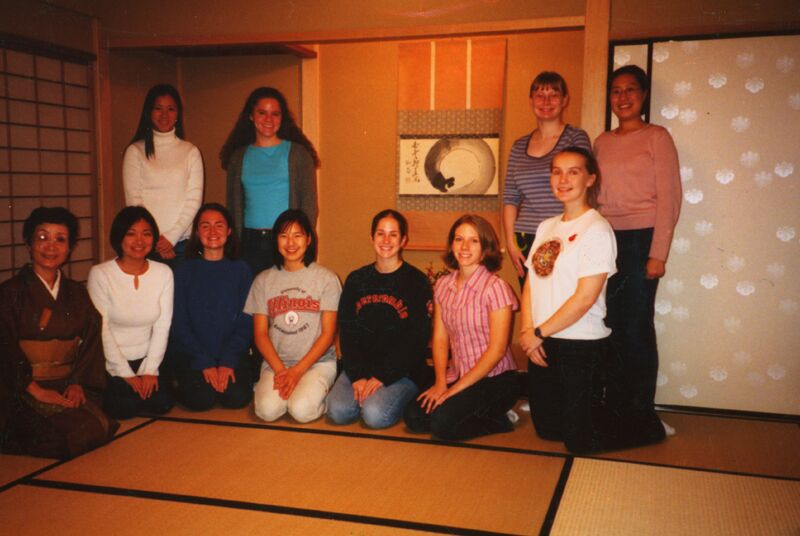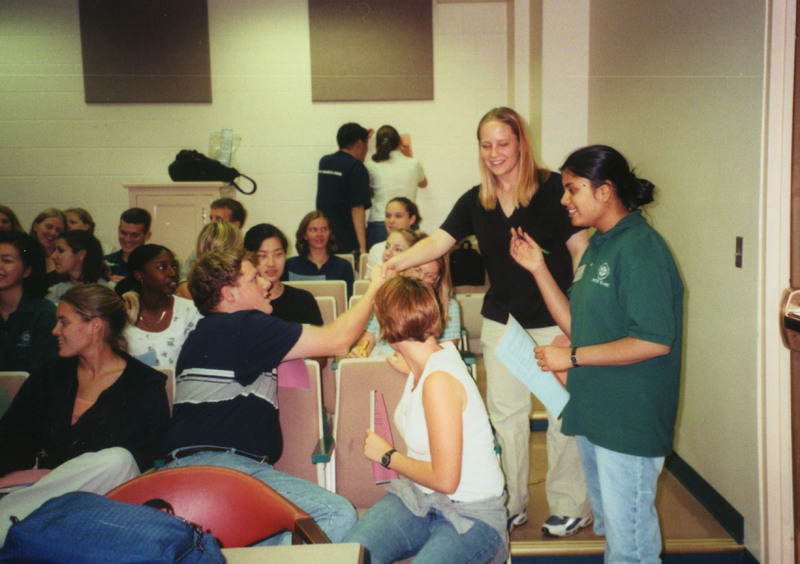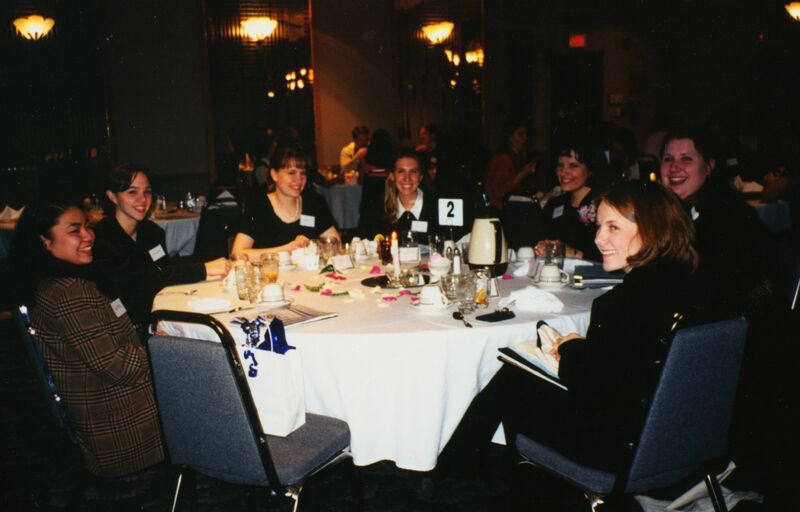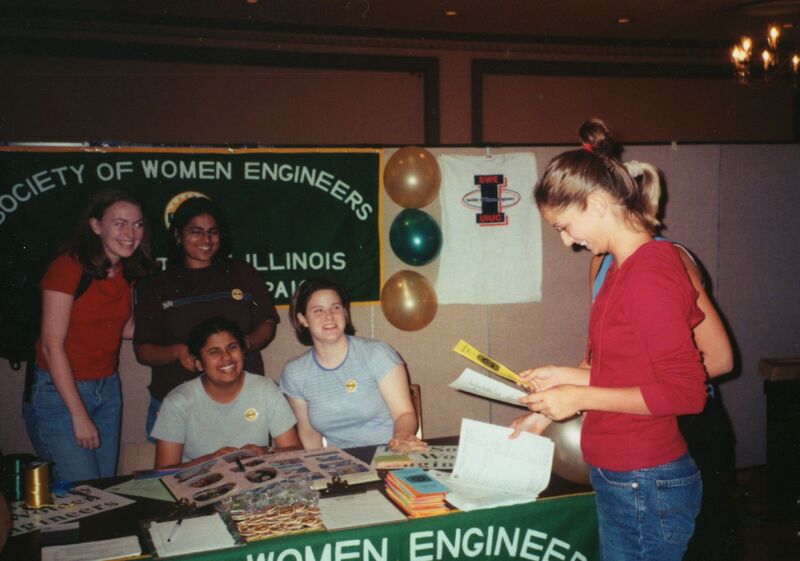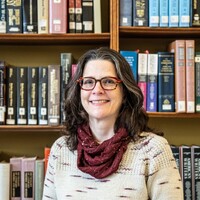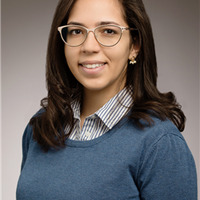April 2023 - Dr. Molly Goldstein
Dr. Molly Goldstein is an Assistant Teaching Professor and Product Design Lab Director in Industrial Enterprise Systems Engineering at the Grainger College of Engineering. Her research focuses on student design trade-offs and decision-making with an emphasis on engineering designs that consider environmental concerns. Dr. Goldstein joined the University in 2018 after earning her Ph.D. at Purdue University.
During her time at Purdue she was a Bilsland Fellow and was awarded the College of Engineering Outstanding Research Award. Prior to getting her Ph.D., Dr. Goldstein received both her B.S. in General Engineering (Systems Engineering & Design) and M.S. in Systems and Entrepreneurial Engineering from the University of Illinois and worked as environmental engineer focused on environmental concerns and specializing in air quality.
From the University Archives:
The University of Illinois has a long history of trying to combat issues women in engineering face and encouraging women to join engineering. During World War II worker shortages due to men going off to war, there was a big push for women to be trained and take some of these positions. To help with this in 1943, the College of Engineering began offering a training course for women designed to produce “Engineering Aids” to help fill some of these vacant roles (“Engineers Discuss Training Proposal for Women Aids”). While this push is one of the earliest attempts to get more women into engineering, it was primarily done out of a desperate need for workers and not out of a desire to help women as can be seen in these Daily Illini articles found in a 1942-1945 Scrapbook made by the Engineering Department.
The need was dire enough that one company, the Pratt and Whitney division of the United Aircraft corporation, decided to offer twenty scholarships to put women through the program so that they could graduate and fill jobs within the company. The scholarships, however, did not initially receive much response. One Daily Illini author responded by saying that “Some women don’t know a good thing when they see it!” (“Need a Push, Ladies?”).
The author speculated that the scholarships may be unpopular “because they are given under that frightful word ‘engineering,’ which the girls tell us they simply cannot understand (“Need a Push, Ladies?”). Attempting to convince women to apply, the author went on to say:
“Engineering is simply not for women,” they complain. What they mean is that in the past women have not pursued this field. But it is high time they start. A lot of things are not as they were in grandma’s day, and the time is at hand when a lot of people will have to wake up to the present.
The sentiment may have gone over better without the author shaming women for not applying and saying that women on campus “feel very smug and satisfied with themselves when they contribute one evening every other week to dancing at the local USO center.”
Despite war efforts to recruit women, the general growth of women in engineering has been rather slow due in part to an environment that hasn't been overly welcoming toward them. In 1959, seven of the fourteen women enrolled in the College of Engineering at the time joined together to create the University of Illinois’s first chapter of the Society of Women Engineers.
“Engineering Coeds Meet” is an article from the Daily Illini found within the 1959 (July) Scrapbook for the College of Engineering which discusses the new chapter and some of their reasons for wanting to form it. They mention especially the need to band together given how few women there were in their field and the article states that at the time only 70 women on average were graduating with degrees in engineering in the United States every year.
While it started small, the Society of Women Engineers is now a thriving group on campus that works to create a more welcoming and supportive environment for women in engineering and to recruit new women into engineering. These photos show some of the activities, events, and meetings the group has put on toward these goals.
Along with activities designed for the members of the Society of Women Engineers, the group has also worked to give back and serve as role models for the next generation. This letter from 2006 was sent from Nicole Rose, the Society of Women Engineers Outreach Director at the time, to all the University of Illinois staff urging them to participate in that year’s “Take Our Daughters and Sons to Work Day” which was designed to help kids “learn more about jobs and science-based careers available at UIUC.”
In addition to clubs like the Society of Women Engineers working to make engineering at the University of Illinois more welcoming to and supportive of women, the department of engineering has also been proactive in trying to support its women engineers. In 1989, the Lynn Barry Policy Study Internship was established by the Engineering Department to provide “interesting and useful student perspectives” on various issues within the department.
In 1990, the internship was awarded to Elaine Fiolka who was a senior in Nuclear Engineering at the time. She was charged to study "the environment our undergraduate women and minority students experience during the course of their academic pursuits here” (Correspondence Regarding Lynn Policy Study Internship). This letter from A. F. (Tony) Graziano, who was the associate dean for administrative affairs for the College of Engineering at the time, was sent out detailing what Elaine found and how she went about the project.
In her report, Elaine found that minority students and alumni, including women, felt “isolated from other students” and “out-of-place in the classroom” (pp. 2, 4). She also reported that some women said they felt “the attitude that it is ‘unfeminine’ to be an engineer” which echoes the sentiments expressed nearly half a century earlier (p. 2).
Meanwhile, some of the faculty reported that there was “excessive coddling of minorities” and that “the ‘U.S. government had conditioned minorities to expect special treatment’ in spite of their backgrounds” which is an attitude that certainly wouldn’t make women or other minorities feel more welcome within engineering (p. 3). Faculty members also reported “that they sometimes feel confused as to how they should treat a female student, as a professional or as a lady” (p. 3).
Recommendations from surveyed individuals to fix some of these issues included education, expanded tutoring programs, mentor programs, expanded recruiting efforts to high school students, and starting a newsletter to provide information and help “lessen the feeling of isolation of many students” (pp. 4-6). Elaine’s own call to action was that “a commitment is needed from all levels, administrators, faculty and staff, students, and industry, if this situation is to improve in time” (p. 7).
In 1993, William Schowalter, the dean for the College of Engineering at the time, convened two committees to study and report on the environment for women in the College of Engineering. One was intended to study undergraduate women while the other focused on women graduate students and faculty. Dean Schowalter’s original charge reads:
Engineering traditionally has been shunned as a course of study by American women, possibly because of public perception of a man with muddy boots and a hard hat on a construction site. This view was probably encouraged by many men in order to preserve the men’s club. But times have changed and so will the field of engineering. More women must be convinced that engineering is a challenging field offering personal satisfaction and economic advancement. The profession must value the intellect, vigor and creativity of women in order to serve all of society. Yet barriers exist and the number of women engineers and their rank in the profession is far from equality with men. This represents an opportunity for enrichment of the field in both numbers and outlook; but more important, some barriers are artificial, discriminatory and not perceptual. The College of Engineering must undergo a self-examination to identify and diminish the barriers to women regardless of their origin. (“Final Report of the Committee on the Status of Women Graduate Students and Faculty in the College of Engineering” p. 1).
While Dean Schowalter’s guess as to why more women were not joining engineering is reminiscent of the 1943 Daily Illini articles, his intentions to help women shows how much attitudes had changed in the 50 years since then and the College of Engineering’s commitment to supporting women in engineering.
One of the common recommendations from both Elaine Fiolka’s 1990 study and the 1993 studies was the need to provide mentoring for women engineering students. As a faculty member, Dr. Goldstein is able to act as both a role model and mentor for women engineering students. Recently, Dr. Goldstein served as a speaker at the Graduate Women in Engineering Network (GWEN) Symposium offered at Purdue University on February 7, 2023 (“Guest Speaking”). The event was designed to inspire women engineering students and help them build community.
In 2021, she and two of her undergraduate students, Lorena Escamilla and Jesus Zavala, designed and piloted a virtual engineering camp for middle school students to get them interested in engineering (“Goldstein’s Renaissance Engineering Summer Camp Incorporates Art, Design, Mechatronics, and Mentoring”). Through work like this, Dr. Goldstein is able to help the college continue improving the environment for women engineers and to recruit new women engineering students.
Sources and Further Reading:
- College of Engineering Subject File, 1895-, Record Series 11/1/1, Box 44, University of Illinois Archives
- Daily Illini, 1874-, Record Series 41/8/801, University of Illinois Archives
- Engineering Scrapbooks, 1894-1969, Record Series 11/1/52, Boxes 5 and 6, University of Illinois Archives
- Society of Women Engineers Records, 1992-93, 1995-2002, 2004, 2006, Record Series 41/67/153, University of Illinois Archives
Articles about Dr. Molly Goldstein:
- Elizabeth Innes and Garima Sharma, “Goldstein’s Renaissance Engineering Summer Camp Incorporates Art, Design, Mechatronics, and Mentoring,” I-STEM Education Initiative News, November 1, 2021
- “Guest Speaking,” The Grainger College of Engineering: Molly H Goldstein: Recent Events
